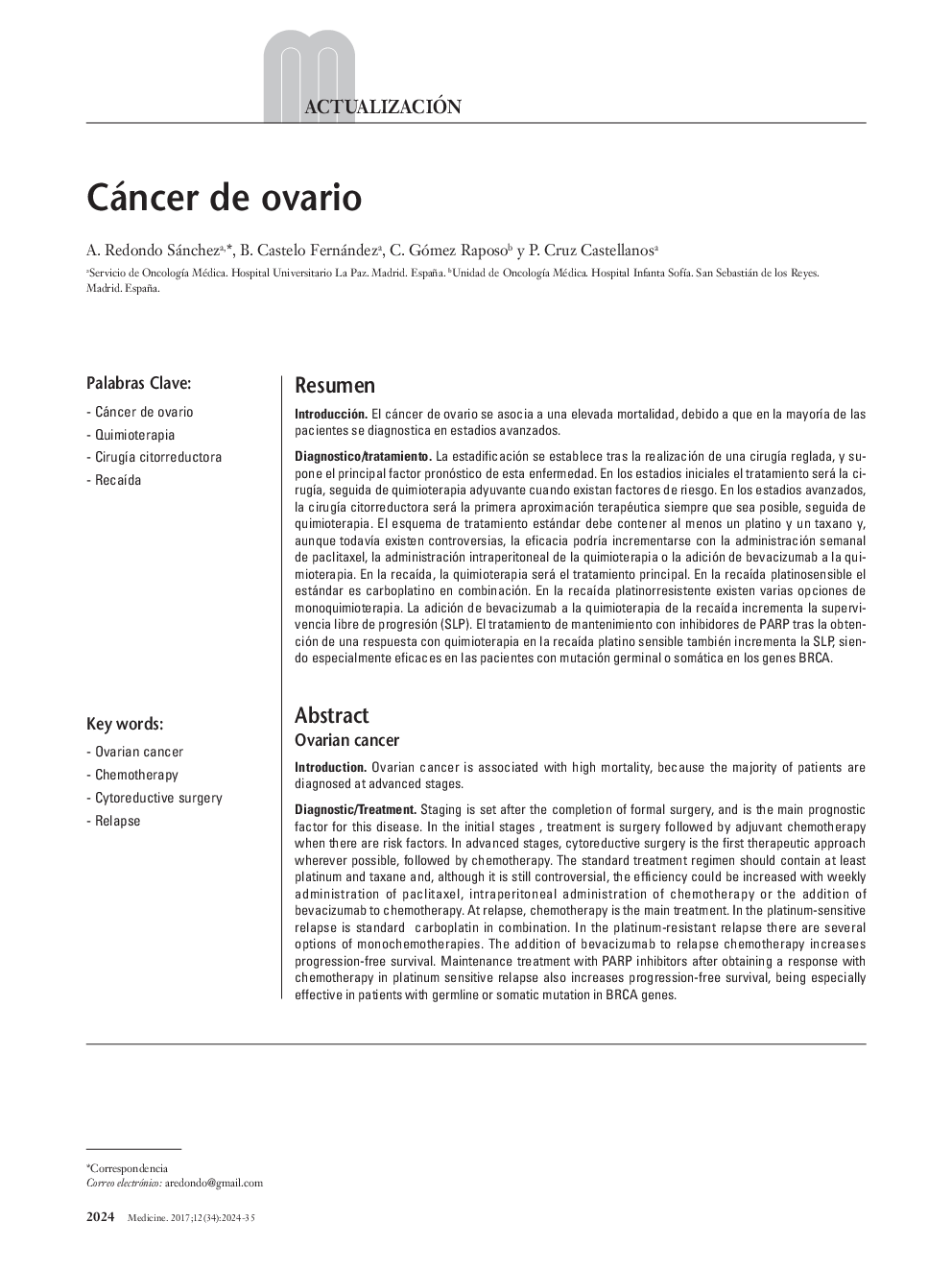| Article ID | Journal | Published Year | Pages | File Type |
|---|---|---|---|---|
| 5681437 | Medicine - Programa de Formación Médica Continuada Acreditado | 2017 | 12 Pages |
Abstract
Staging is set after the completion of formal surgery, and is the main prognostic factor for this disease. In the initial stages, treatment is surgery followed by adjuvant chemotherapy when there are risk factors. In advanced stages, cytoreductive surgery is the first therapeutic approach wherever possible, followed by chemotherapy. The standard treatment regimen should contain at least platinum and taxane and, although it is still controversial, the efficiency could be increased with weekly administration of paclitaxel, intraperitoneal administration of chemotherapy or the addition of bevacizumab to chemotherapy. At relapse, chemotherapy is the main treatment. In the platinum-sensitive relapse is standard carboplatin in combination. In the platinum-resistant relapse there are several options of monochemotherapies. The addition of bevacizumab to relapse chemotherapy increases progression-free survival. Maintenance treatment with PARP inhibitors after obtaining a response with chemotherapy in platinum sensitive relapse also increases progression-free survival, being especially effective in patients with germline or somatic mutation in BRCA genes.
Keywords
Related Topics
Health Sciences
Medicine and Dentistry
Medicine and Dentistry (General)
Authors
A. Redondo Sánchez, B. Castelo Fernández, C. Gómez Raposo, P. Cruz Castellanos,
